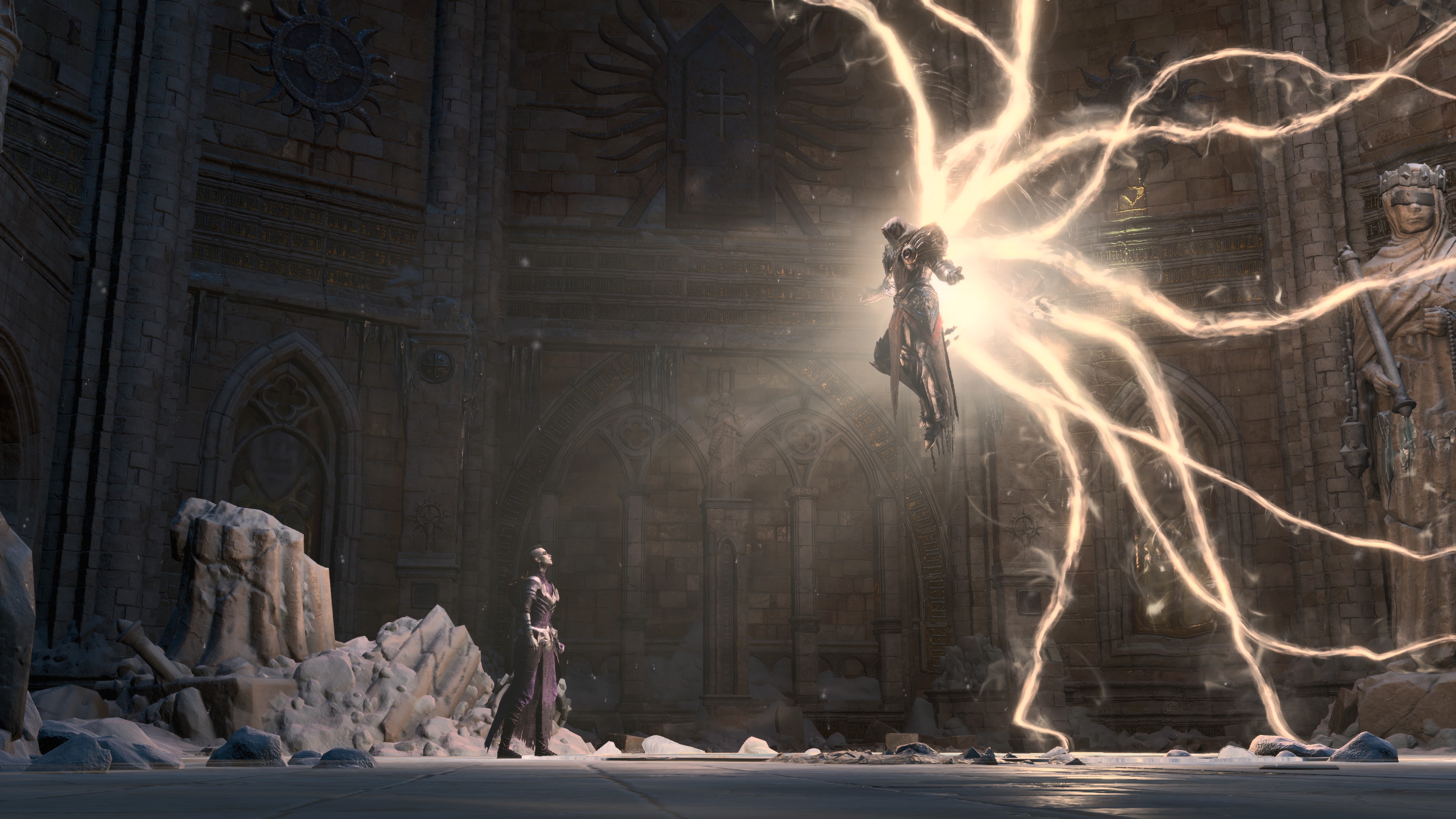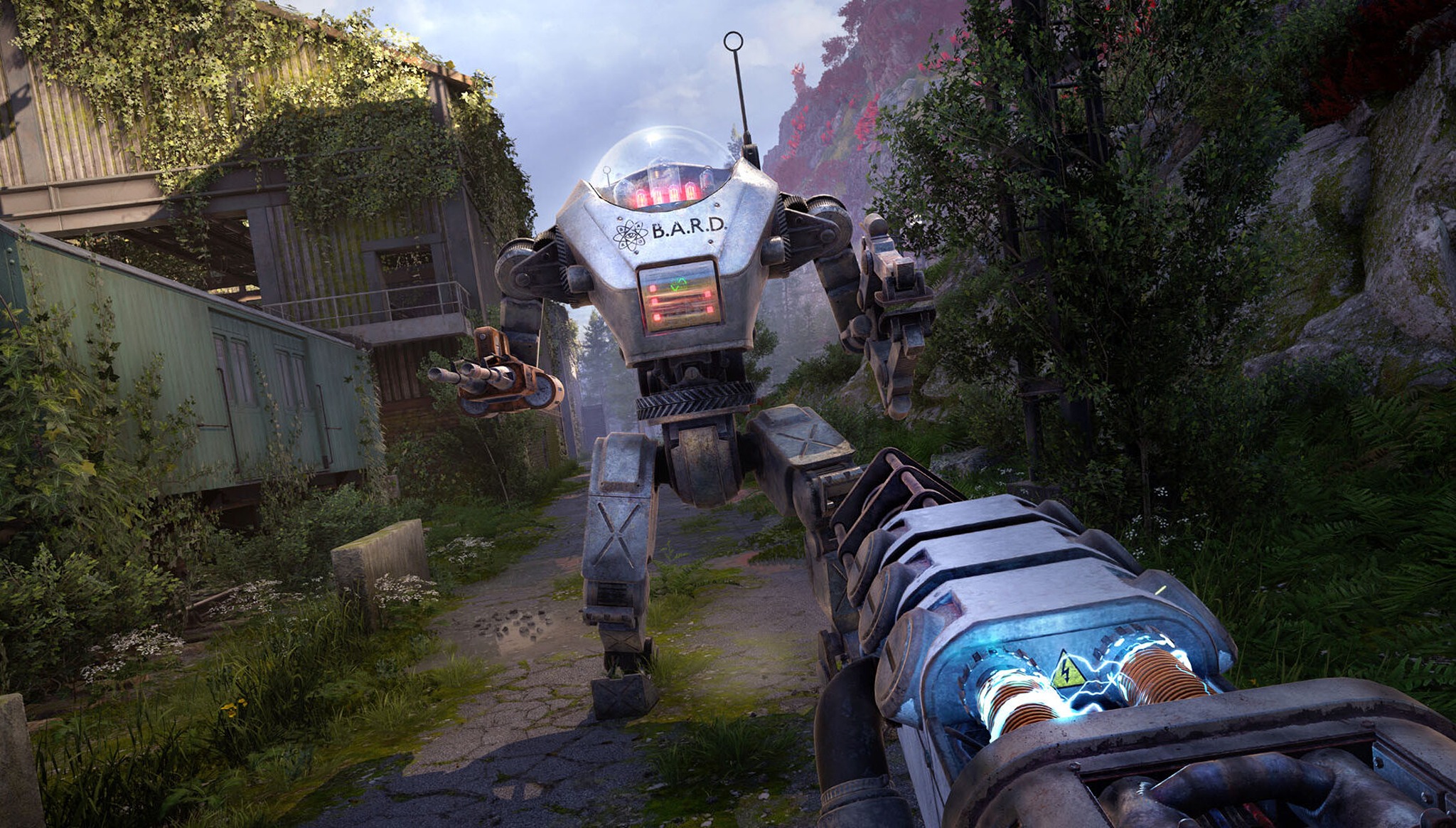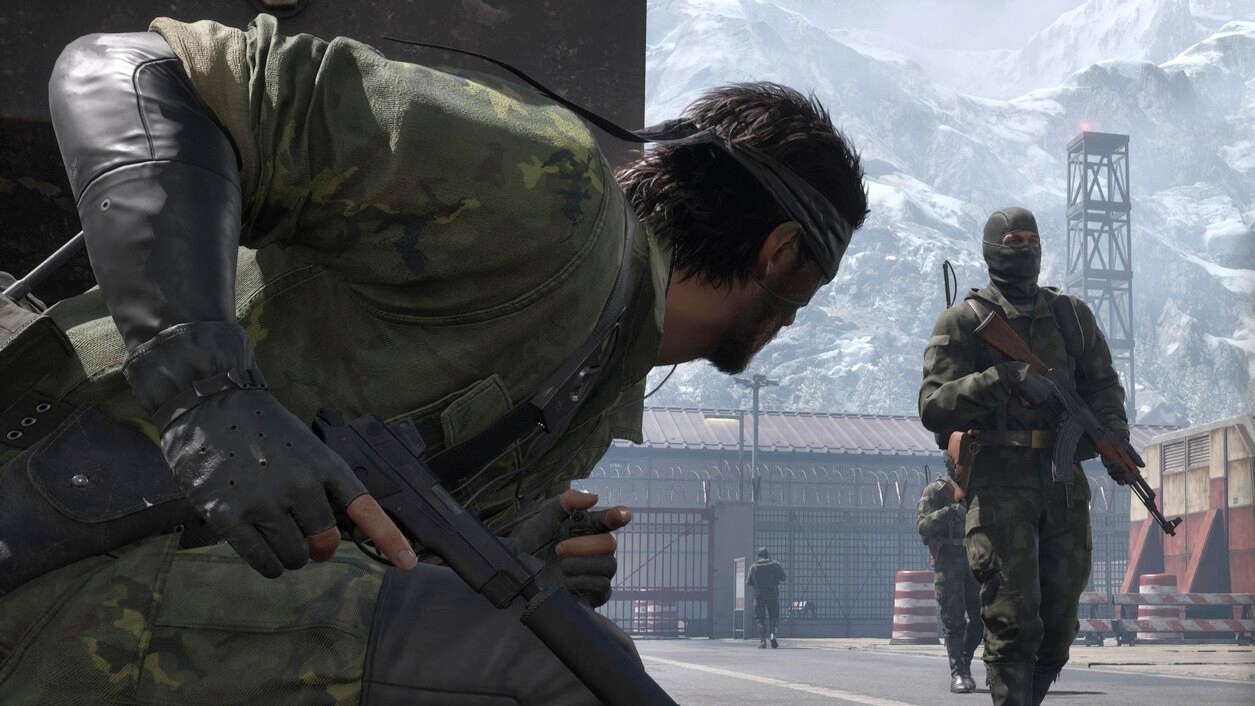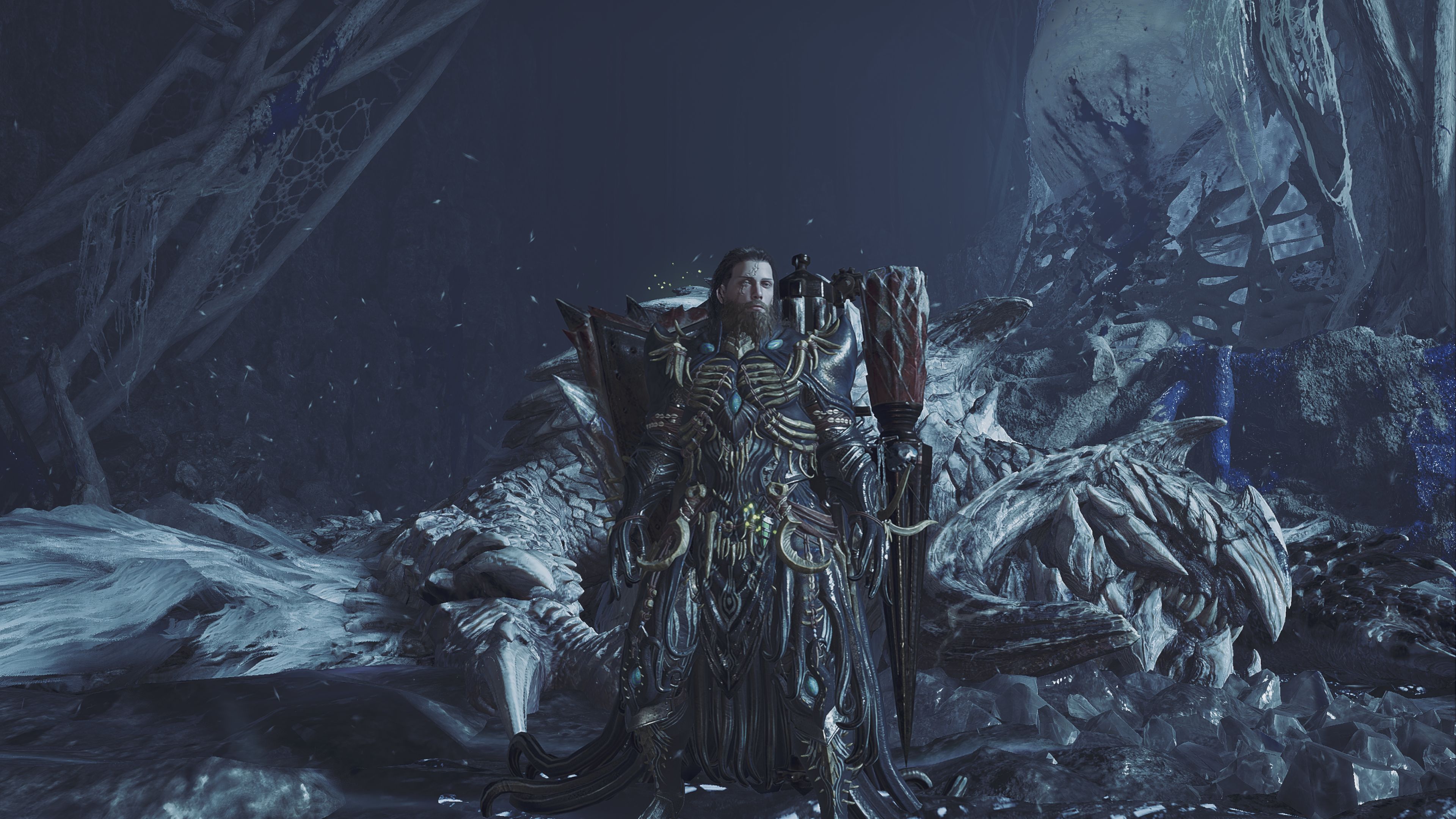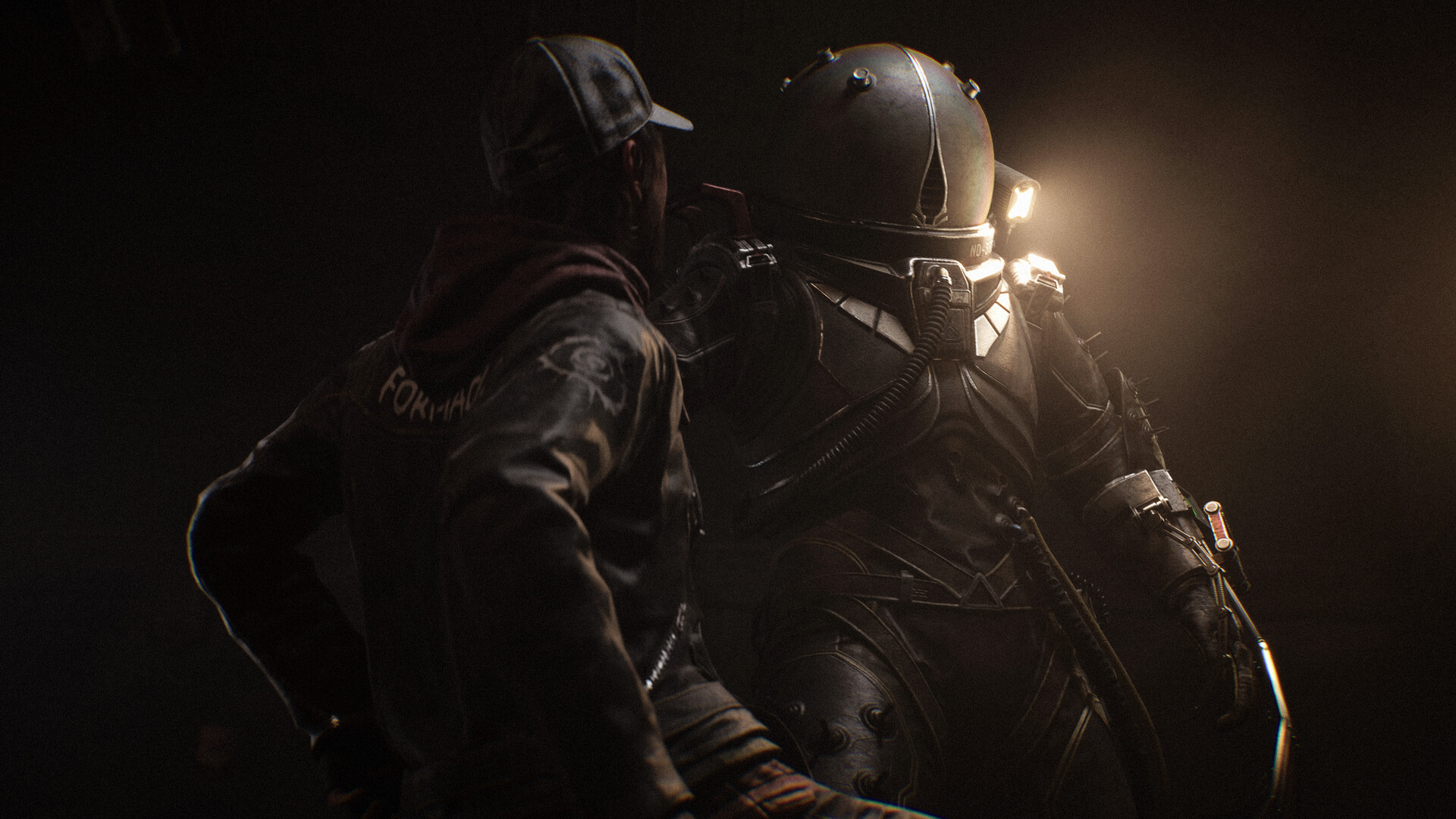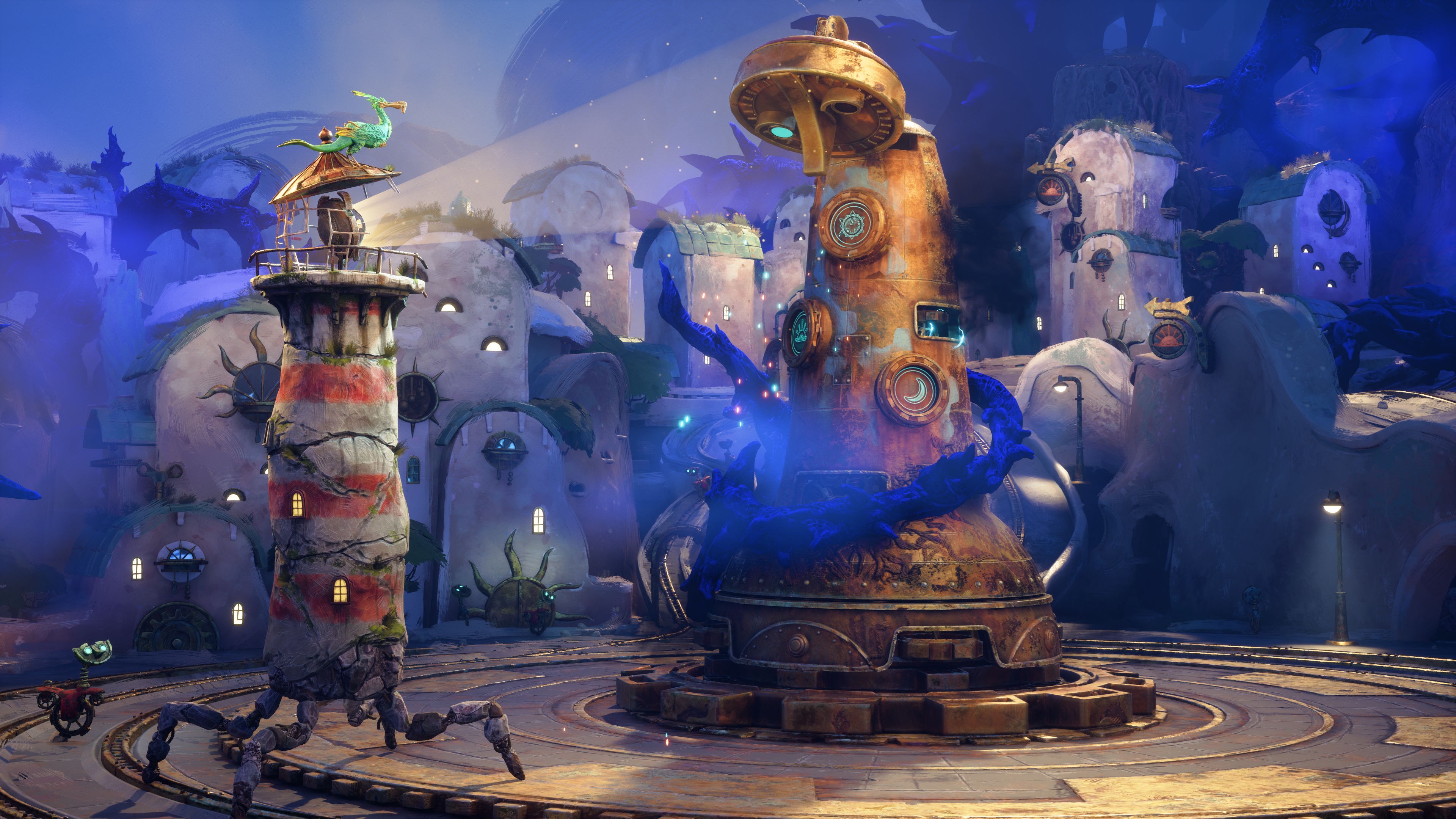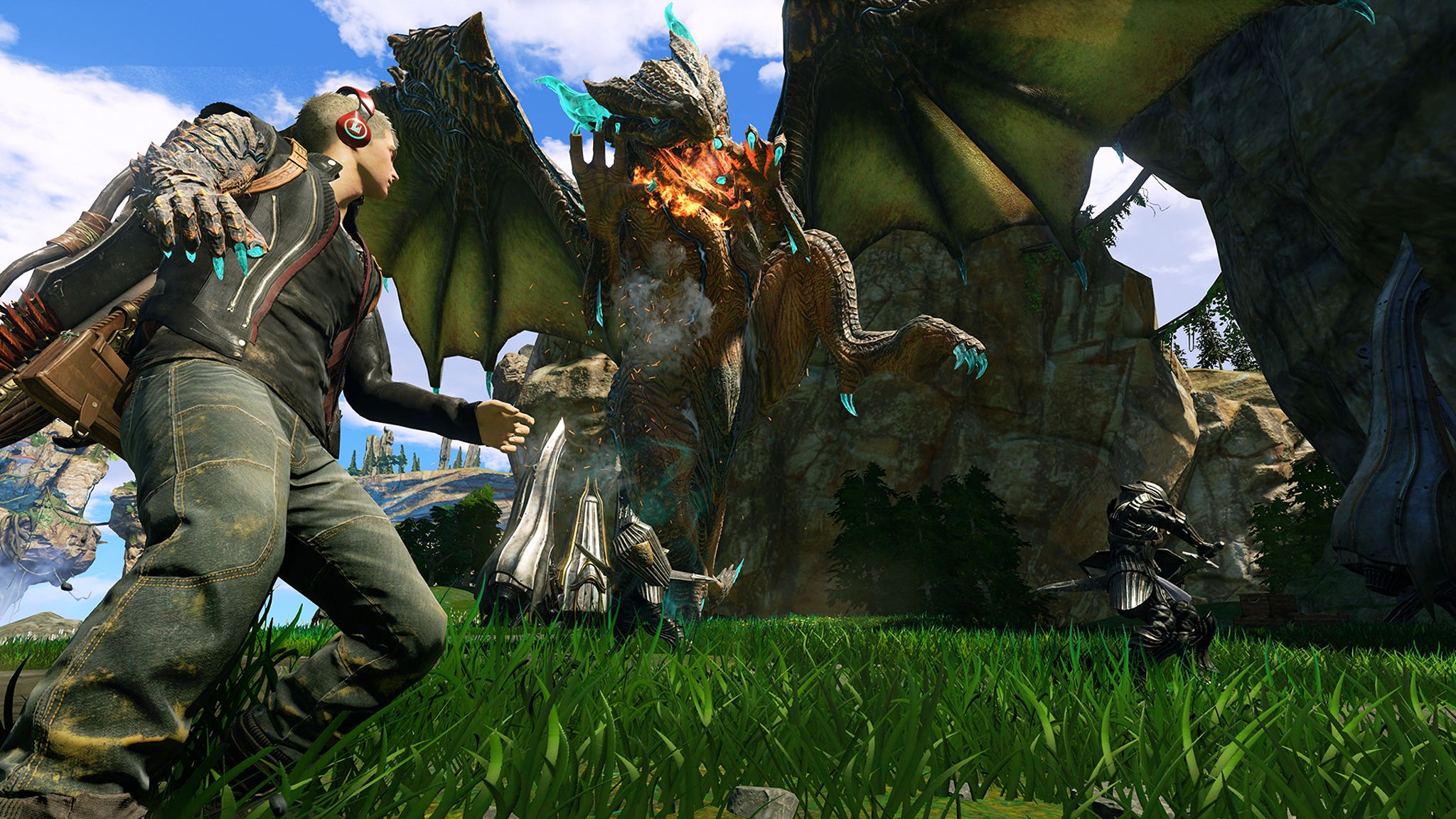All of my favorite Xbox games this year came from indie devs — am I old or have AAA publishers completely lost the plot?
2025 was another stellar year for games, but increasingly I find myself assuming games from AAA publishers aren't worth the effort. Am I just out of touch?
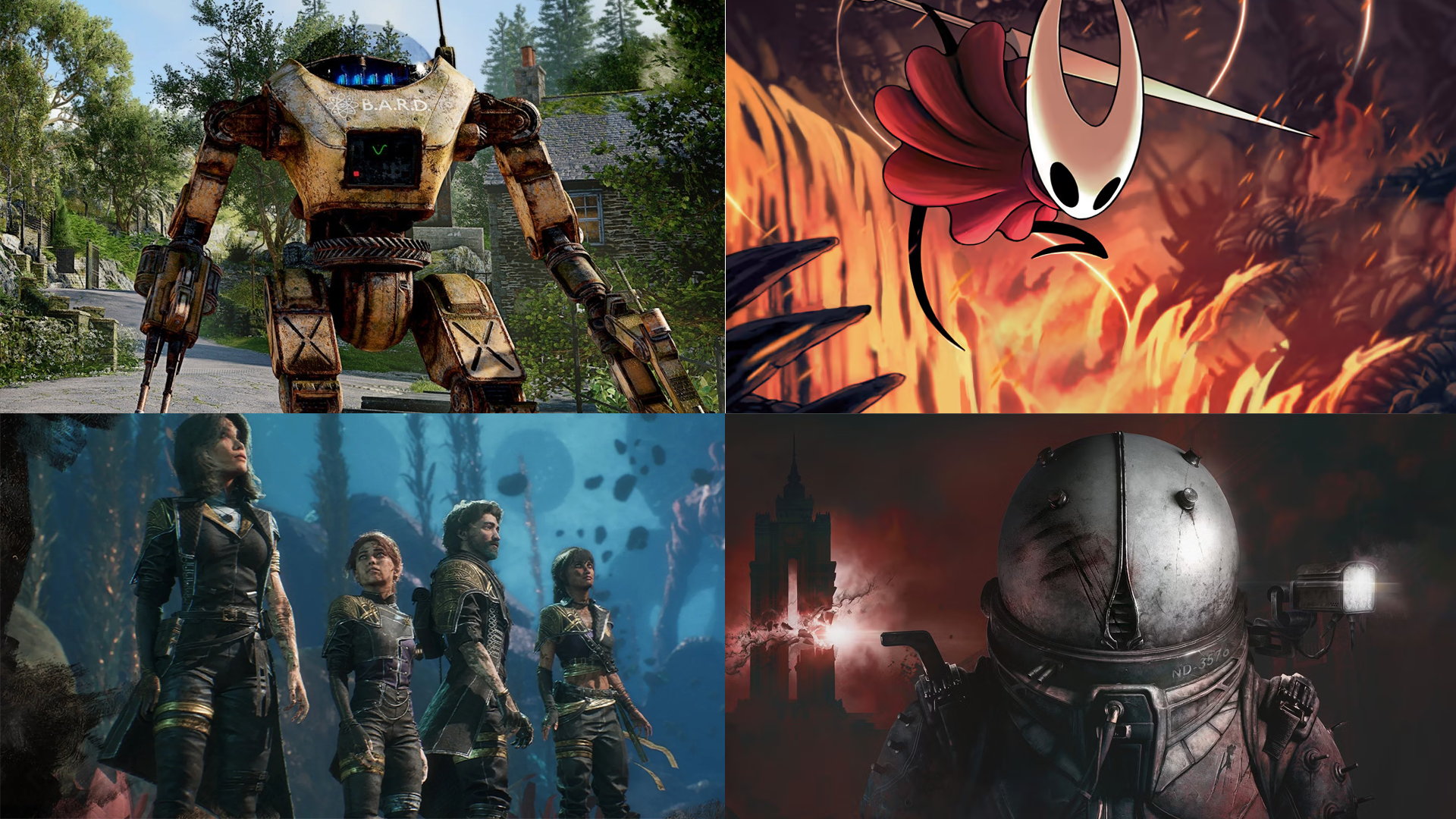
All the latest news, reviews, and guides for Windows and Xbox diehards.
You are now subscribed
Your newsletter sign-up was successful
Xbox has a new 'history' setting, which lets you view the most recent games you played across devices. On Xbox PC or on Xbox console, you can now view a list of the games you've been playing in chronological order, based on when they were most recently launched.
The feature has only been live for a few weeks, but I noticed something interesting about mine. The vast, vast majority of games in my log were from independent studios.
2025 has been another bumper year for games and gaming in general, as more and more titles delayed due to the pandemic and other factors continue to seep out. 2025 felt especially impressive for independent game developers, however — at least for me.
The term "indie" means different things to different people, particularly with regard to the end product. In this context, I'm referring to studios that are wholly independently owned, and aren't beholden to mega publishers or mega corporations, like your PlayStations, Microsofts, or Electronics Artses of the world. Some independent studios do take publishing deals with the big companies out there for their games, but many leverage self-publishing via platforms like Steam or via ID@Xbox in the Microsoft gaming ecosystem.
Over time, I've found myself increasingly at odds with the types of games those aforementioned mega publishers seem to want to make. I'm not sure if it's because I'm simply not their target audience anymore, whether the games themselves have suffered in quality and polish, or whether there's some kind of creative delta growing between what developers want to make and what publishers are willing to fund.
I'm only speaking for myself here, of course, but I'm curious if any of you have experienced similar feelings this year about the state of game creation.
AAA publishers have dropped off, or ... maybe I'm old
Gaming preferences are, of course, entirely subjective. What I love might be completely at odds with what you love, and so on, but it does seem like there's been more aggressive scrutiny over the behavior of AAA publishers as of late.
All the latest news, reviews, and guides for Windows and Xbox diehards.
It's nothing new, of course. EA has been notorious for winning "Worst Company in America" awards in decades past, and everyone else from Activision to Ubisoft has found itself caught up in backlashes and controversy. But increasingly, I find that the key difference is that there are now very strong alternatives to what so-called AAA publishers are offering. This was perhaps almost always true of Steam PC gaming, but thanks to ID@Xbox and indie publishing programs on other platforms, it has become true on console as well.
This year, I found myself spending hundreds of hours with games, quite affirmatively not from AAA publishers. WH40K: Rogue Trader, The Alters, Cult of the Lamb, Factorio, Frostpunk 2, Cronos: The New Dawn, Expedition 33, Atomfall, Wuchang: Fallen Feathers, and recent smash hit Hollow Knight Silksong, to name just a few.
There are even more in my growing backlog that I want to hit up too, such as Hell is Us, Grit and Valor, Songs of Silence, Blue Prince, Satisfactory, STALKER 2, Palworld, Mandragora — there are many independent games well and truly hitting the "AAA" bar too, with Black Myth Wukong, Dying Light: The Beast, and Kingdom Come Deliverance II to name just a few. You could probably put Cronos and Wuchang in this list as well.
Some of the best "publisher" games ironically also came from independent teams, Death Stranding 2 from Kojima Productions, Helldivers 2 on Xbox from Arrowhead — but there have been some success stories like DOOM: The Dark Ages and Borderlands 4, both of which seem to have done well in sales, even if there was some controversy around the latter. More on that in a minute.
I suppose some will wonder what truly constitutes "indie" overall, since some of the games above did have smaller publishers attached to them in some form. But the common thread for me is, regardless, the creativity seems to be emerging from studios that aren't dominated by massively publicly traded entities hovering above them.
I'm speaking generally, but has creativity and the will to take risks totally died among these mega corps?
AAA increasingly dilutes risk on remakes, repetition, and service games, is creativity dead?
Practically the only "AAA" mega-corp published game I'm looking forward to in any capacity for the rest of this year is Battlefield 6. And it comes with a pretty huge caveat.
Battlefield 6 seems like, in its entirety, a reaction to draw back a core audience burned by multiple iterations of a diluted core formula. Battlefield 2042 chased a gameplay structure that lobotomized what the franchise is known for, most likely to create a platform for selling skins and characters.
You know, greed.
Battlefield 6 has been quite aggressive in proclaiming that its skins will remain "grounded" in the game's universe. But it's not necessarily out of kindness.
The core increasingly seems to be moving on to games and developers that visibly want to deliver for them — rather than shareholders.
It's in response to the backlash another AAA-published game is seeing. Call of Duty's absolutely abysmal and military-mocking skins have laid the foundation for Battlefield 6 to potentially steal some of Call of Duty's audience this year, forcing Activision itself to acknowledge the drama and pledge to keep skins less tacky and cartoony in the future.
Big service games are expensive to run, so I don't begrudge companies committing to dedicated server infrastructure and ongoing content from having a viable business model. Developers deserve to get paid (and paid well, too). But chasing whales who will buy reams of dumb skins is an effective way to hollow out the core audience that made your game popular in the first place. No core means no whales. And the core increasingly seems to be moving on to games and developers that visibly want to deliver for them — rather than shareholders.
Another recent example of a big "AAA" game chasing sales to the core game's detriment is Monster Hunter Wilds. Capcom took a game notorious for its tricky difficulty and made it vanishingly easy and simplistic, presumably to chase a wider audience. It only served to rob the game of its long tail and, thus, relevance in the process. Capcom conceded that Monster Hunter Wilds' engagement had been disappointing, as fans flocked to the previous game instead. It's not just about the game's core systems being poor, though.
Monster Hunter Wilds joined games like Borderlands 4 in backlash over technical issues and performance. Hollow Knight: Silksong notoriously took years to finally ship, but the resulting product is feature-complete and very well polished, and became one of the highest-grossing indie games of all time as a result. Wilds, Borderlands 4, and many others shrugged off delays to satisfy quarterly publisher targets — only to the franchise's detriment and reputation.
These are just a couple of examples, but I can't help but feel that the vast majority of the indie games I played this year were also just incredibly well-polished, too. Many of them are cheaper to make, sure, and some will be easier to polish due to their relative simplicity, but perhaps that's virtuous in and of itself. Nintendo doesn't chase cutting-edge visuals; it puts fun and creativity at the forefront. Roblox is the biggest game in the world with graphics that look ripped from the PS2 era. Some of the biggest games of this gen have been on the simple side, eschewing complex networking tech and high-end visual treatment.
But even then, increasingly, indie developers are producing very respectable "AAA"-level graphics on a budget, too. Cronos: The New Dawn cost $27 million to make, and looks at least as gorgeous as any other similar horror game on the market.
I feel like creativity has left most AAA publishers as well, as they rely on familiar territory and remakes to offset risk against their precious shareholders.
Indie Japanese-style RPG Expedition 33 is a game of the year favorite, and was built by Guillaume Broche, a former Ubisoft Producer, alongside various other industry veterans. In another universe, Expedition 33 might have been built by Ubisoft, but it has been years since Ubisoft took even the vaguest risk — blowing tens of millions chasing trends like battle royale and even Call of Duty itself to no avail.
It feels like publishers like EA and Ubisoft seem to stifle creativity and chase away developers who might make them the type of games that could give them "game of the year" opportunities. Dragon Age: The Veilguard from EA was a pale imitation of the quality the franchise was previously known for, casting doubt over BioWare in its entirety. But ... it's true that games like Apex Legends and EA FC simply make boatloads more money, as on-going service games rammed with microtransactions, and that's ultimately what these companies are gunning for here.
Maybe I'm just not the target audience anymore, and that's fine
Among the doom and gloom I'm throwing at AAA publishers, there are some bright spots worth mentioning, too. PlayStation, Microsoft, and Nintendo, as platform holders, do seem to be willing to fund creativity and risk-taking more so than other publishers seem willing to. Microsoft has funded a variety of smaller, more arty games from Towerborne to Pentiment and the upcoming wacky-looking Keeper, and its ID@Xbox program is funding indie games to the tune of billions of dollars. It also cancelled various other original projects, however, including Perfect Dark recently, and Scalebound in years past.
Hideki Kamiya, who was leading development on Scalebound, noted that the project might have survived at a less risk-averse Japanese publisher, while still placing blame on himself for the game's failure. Indeed, it does seem like a lot of the traditional "core" games are emerging from Asia these days, both at an indie and AAA level. There's Ninja Gaiden 4 from Microsoft, Onimusha and Resident Evil Requiem from Capcom, and Square Enix has also leaned into "risky" and niche creativity across games like Octopath Traveller and Triangle Strategy. Then, of course, we have the Elden Rings of the world.
In the West, though, it does feel like the traditional mega-publishers have given up on building core games unless they're remakes of past triumphs or sequels and known quantities. And when they do attempt to make something more "core" and old school, it all too often falls below expectations, such as Starfield or the latest Dragon Age.
I'm not sure why it keeps happening. I can only assume that without a long-tail service with MTX in place, publicly-traded publishers are less willing to fund delays to meet quality expectations than ever before for traditional games.
Perhaps it doesn't matter, though. It seems like a lot of the developers who are similarly aged to me are increasingly building the games that we want in an independent capacity. If we're not the target audience for the types of games EA, Ubisoft, et. al. want to sell, that's fine, because it seems like there's a growing army of high-quality independent studios ready to fill the void.
The big publishers quite blatantly and unashamedly answer to the short-term demands and warped perceptions of shareholder entities — they don't even play the games. The human touch is gone, and gamers have long noticed.
If EA can't deliver a good Mass Effect, Owlcat Games' The Expanse certainly looks set to fill the void. If Fallout 5 never ships, perhaps Atomfall 2 from Rebellion will scratch the itch. If Nintendo can't deliver a half-decent Pokémon game, perhaps Aniimo or Palworld 1.0 will step up. Microsoft won't greenlight Pillars of Eternity 3? Thankfully, we have Larian Games. And so on, and on.
And sure, there are plenty of examples out there where indie developers have attempted to pick up the torch and never found the success they rightly (or wrongly) deserved — but increasingly it feels like it's falling on their shoulders to deliver the traditional experiences people of a certain age (me, old) want the most. The big publishers quite blatantly and unashamedly answer to the short-term demands and warped perceptions of shareholder entities — they don't even play the games. The human touch is gone, and gamers have long noticed.
Listening to shareholder demands too often results in games that fall well short of their potential, in their desperate chase for short-term cash despite the potential for long-term damage.

Follow Windows Central on Google News to keep our latest news, insights, and features at the top of your feeds!

Jez Corden is the Executive Editor at Windows Central, focusing primarily on all things Xbox and gaming. Jez is known for breaking exclusive news and analysis as relates to the Microsoft ecosystem — while being powered by tea. Follow on X.com/JezCorden and tune in to the XB2 Podcast, all about, you guessed it, Xbox!
You must confirm your public display name before commenting
Please logout and then login again, you will then be prompted to enter your display name.
